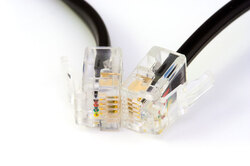What Social Control Media Really Is
Yesterday someone told me that I could - or simply can, anytime - scan the "QR code" (I cannot, I don't have a mobile phone) to get to some Web site, i.e. some JavaScript 'webapp'. I wrongly assumed it was to get some mobile "app". Either way, the subject of mobile phones came up and then Social Control Media. One of the ladies there (it was all females except myself) told me that her boyfriend worked in computing and generally rejected fashionable things like Social Control Media. She said that after I had pointed out that the more people know technology, the more likely they are to reject stuff like Social Control Media simply because they know what it does (or how it truly works behind the scenes).
Social Control Media, in a nutshell, isn't just bad if its controller is some foreign or hostile nation. One's own nation or a private company can be just as sinister and if it's a domestic matter, the sensitive data can be more ruthlessly used when a domestic party accesses that data. But perhaps more importantly, it is not just about surveillance, nor does this matter impact (or puts at risk) young children. Adults need protections too. The worst aspect is the output, not the input fed by the users to the companies/governments (in communistic countries the difference is less profound, the gap is blurred as the two aren't distinct, except superficially). Take for example political influencing. Nobody is invulnerable to it, disinformation notwithstanding. A company that spies on and profiles billions of people (building a model of a person's mindset, ideology, history etc.) knows how to efficiently influence almost any person to vote a certain way, based on religion, gender, known fears, preferred appearances etc. In the case of classic "marketing", as in sales (also not benign, especially as most people have debt), it's easier to push a person to buy some car if you know how much money/budget (again, debt or "credit") that person has, whether that person actually wants/needs a car (or can conceivably be convinced to want one despite not needing one), this person's taste in cars, and various other factors. That's what they've called targeted advertising - an overhyped marketing mode with exaggerated success rates. It's slanted as a purely commercial (business) thing, but in the process it captures a lot of data of political - not economic - nature.
Social Control Media is one of the largest and longest tentacles of the surveillance apparatus because it rewards people with stuff such as "likes" in exchange for revealing personal information (including possibly controversial opinions) about oneself and others. To many people Social Control Media is like a game (and CAPTCHA is a "puzzle"), but to others it's a wire into the synapses.
Social Control Media gives people incentives to do things that might not be in their true interest. █

